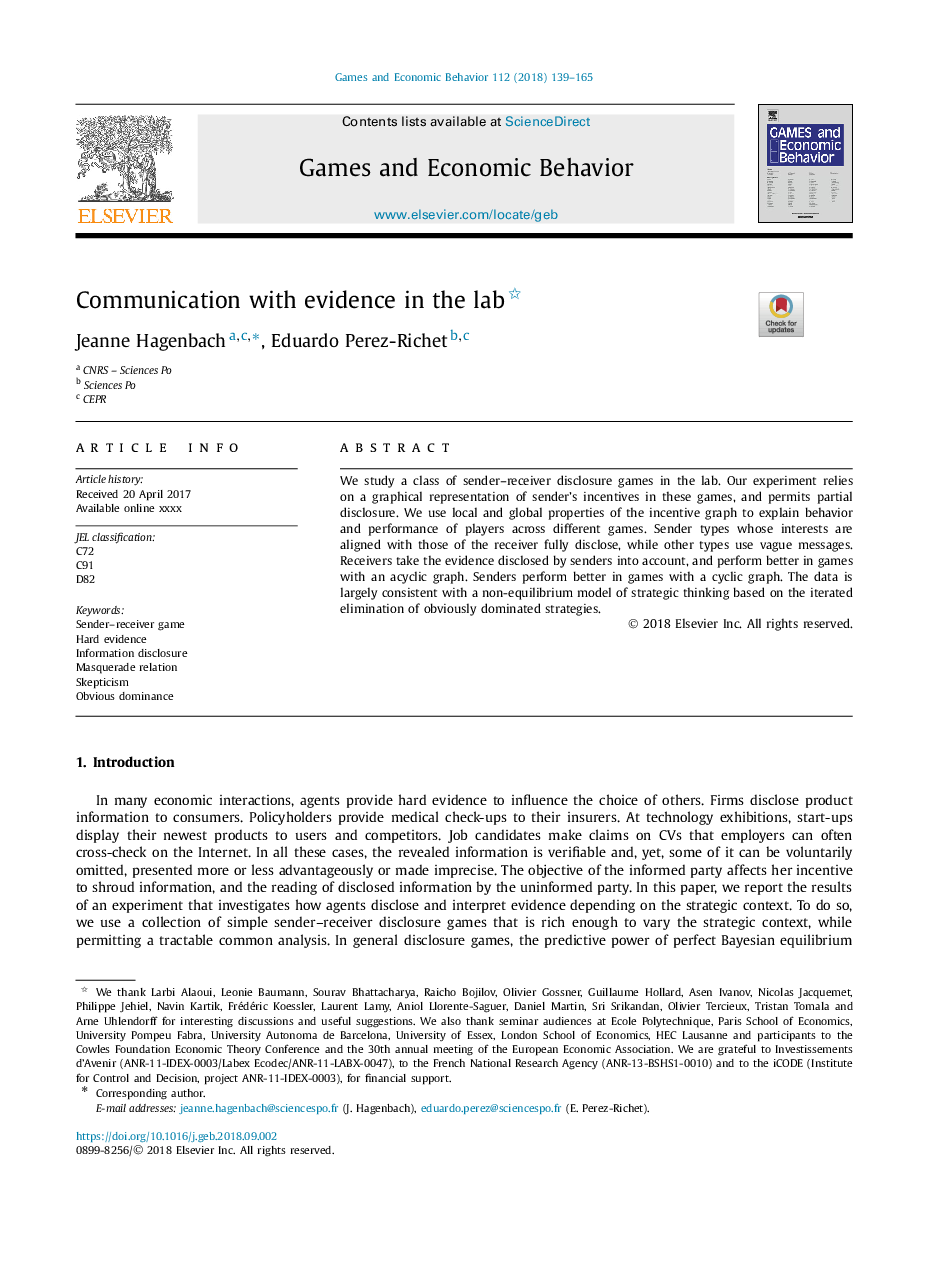| Article ID | Journal | Published Year | Pages | File Type |
|---|---|---|---|---|
| 11004781 | Games and Economic Behavior | 2018 | 27 Pages |
Abstract
We study a class of sender-receiver disclosure games in the lab. Our experiment relies on a graphical representation of sender's incentives in these games, and permits partial disclosure. We use local and global properties of the incentive graph to explain behavior and performance of players across different games. Sender types whose interests are aligned with those of the receiver fully disclose, while other types use vague messages. Receivers take the evidence disclosed by senders into account, and perform better in games with an acyclic graph. Senders perform better in games with a cyclic graph. The data is largely consistent with a non-equilibrium model of strategic thinking based on the iterated elimination of obviously dominated strategies.
Related Topics
Social Sciences and Humanities
Economics, Econometrics and Finance
Economics and Econometrics
Authors
Jeanne Hagenbach, Eduardo Perez-Richet,
